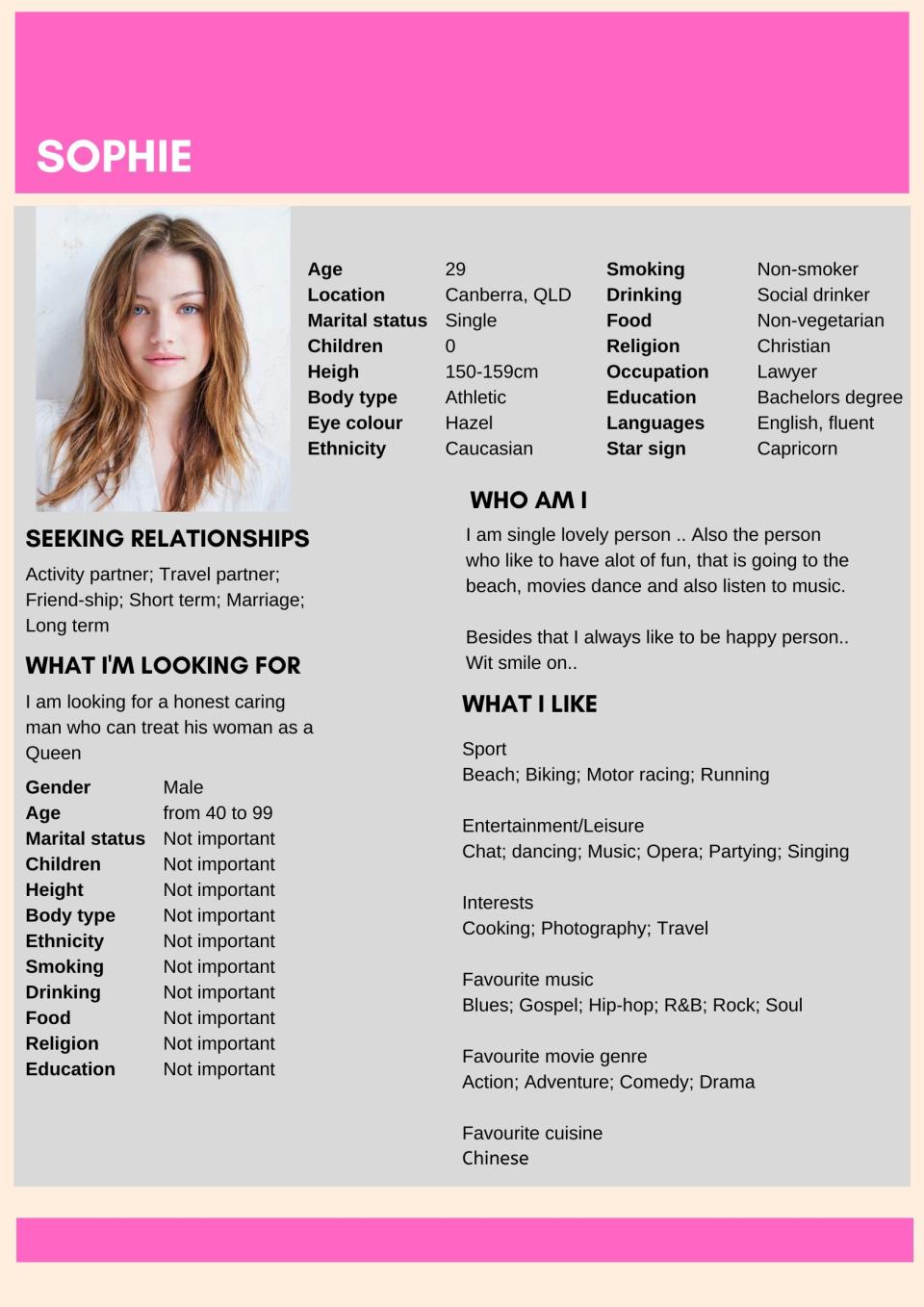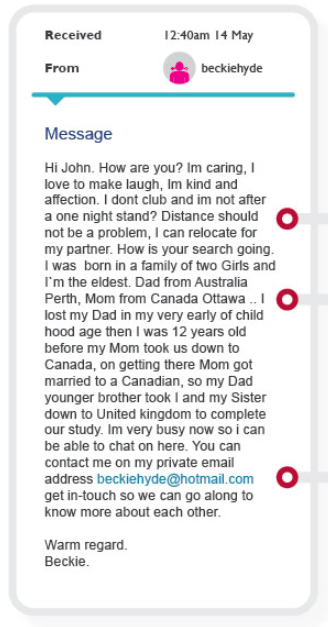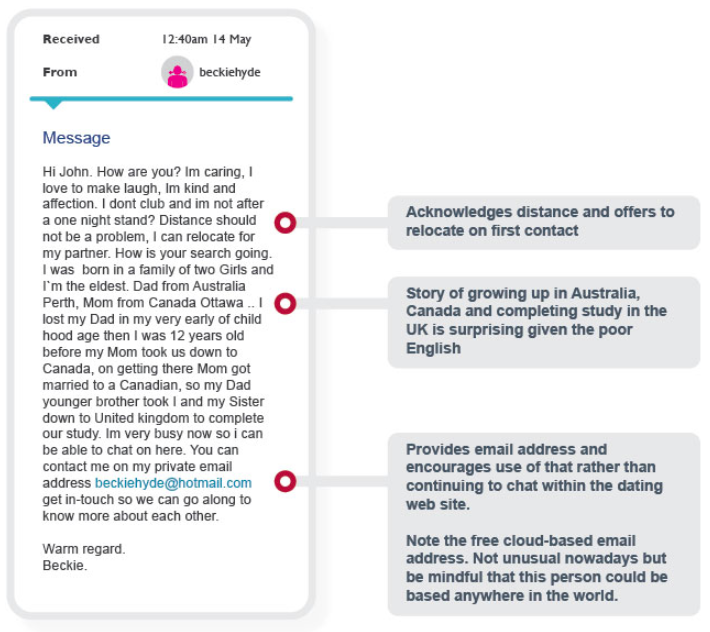Can you see the 10 lies on these dating profiles?

Being stood up is bad, but being stood up by a scammer who stole your money and left you broken-hearted is a real downer.
Related story: Australia’s most dangerous scams are costing Aussies a fortune
Related story: Romance scams were the most 'devastating' of 2019
And with Valentine’s Day around the corner, the Australian Competition and Consumer Commission (ACCC) is warning lovelorn Australians to be on the lookout.
Australians lost $28.6 million to dating and romance scams in 2019, with the highest losses coming from scams on Instagram, Facebook, Tinder and Match.com.
But scammers are also using apps like Google Hangouts, Words with Friends and Scrabble to meet and hoodwink their victims.
The average loss was a whopping $19,000.
“We’ve seen an increase in reports from people who did not originally seek an online relationship but have been caught up in a dating and romance scam,” ACCC Deputy Chair Delia Rickard said.
“No longer are dating websites the only contact method for dating and romance scams, with an increasing number of reports coming from these emerging websites and apps.”
Continuing, Rickard noted the emotional devastation that comes with romance scams, describing them as having “lasting psychological impacts”.
Here’s what to look out for
There are seven giveaways that this profile is a scam. Are you smarter than a scammer?

There are several red flags in this dating profile, but can you find the warning signs in this message?

While some red flags are pretty obvious, others might not be as easy to spot. That’s why it’s important to stay alert, Rickard said.
“If you’re interacting with someone online, it’s important to be alert and consider the possibility that the approach may be a scam,” she said.
“Don’t give out personal information, including your financial details, to anybody you haven’t met in person, no matter who they say they are, and don’t share intimate photos or use webcams in an intimate setting.”
“Don’t agree to carry packages internationally or agree to transfer money for someone else as you may be inadvertently committing a crime.”
She said scammers’ goal is to make the victim fall for the persona they’ve created, and may do this by professing love.
They’ll also tell complicated lies about their lives, why they can’t meet and why they need money.
Did you get them all?
Here are the problems with ‘Sophie’s’ dating profile.

And these are the issues with the message from ‘Beckie’.

Women make up the majority of romance scam victims (54.9 per cent), while Australians aged between 45 and 64 are also the most at risk.
The ACCC suggests those who suspect their online adorer use reverse image searches like Google or TinEye to double check images, and stay alert to spelling and grammar mistakes and inconsistencies.
Make your money work with Yahoo Finance’s daily newsletter. Sign up here and stay on top of the latest money, news and tech news.

 Yahoo Finance
Yahoo Finance 
